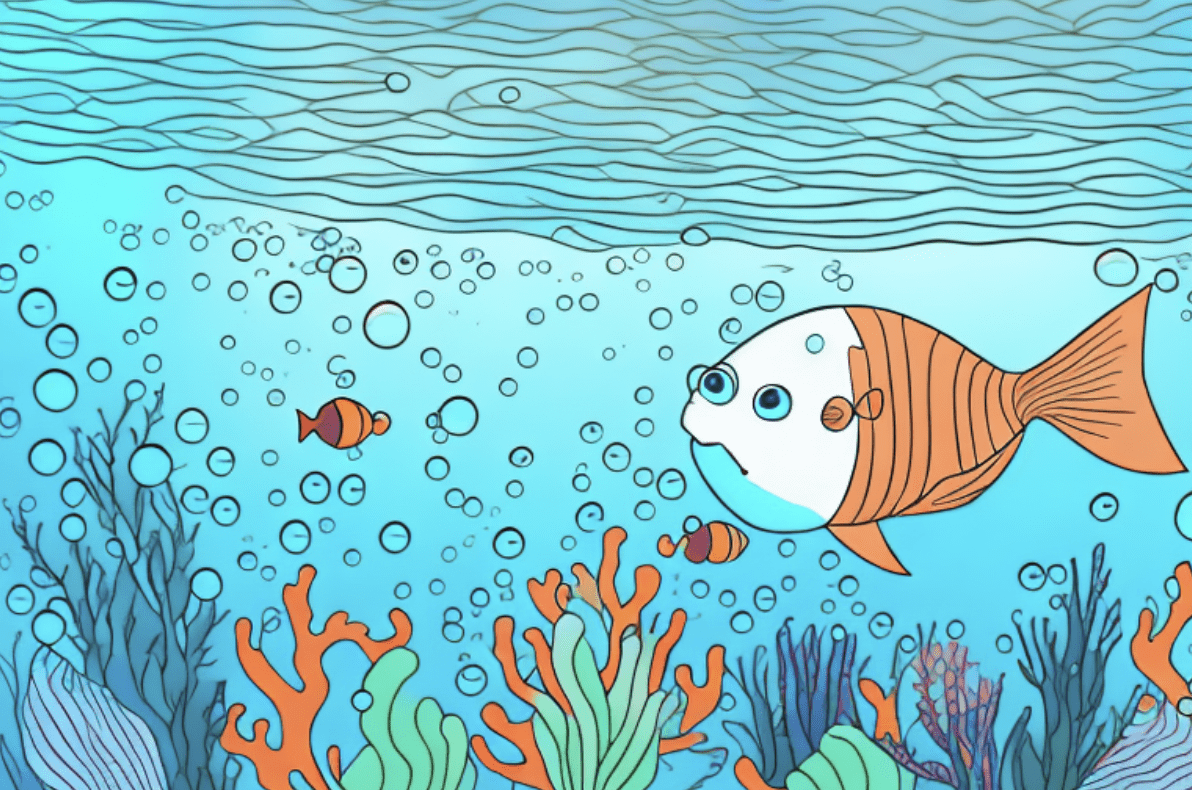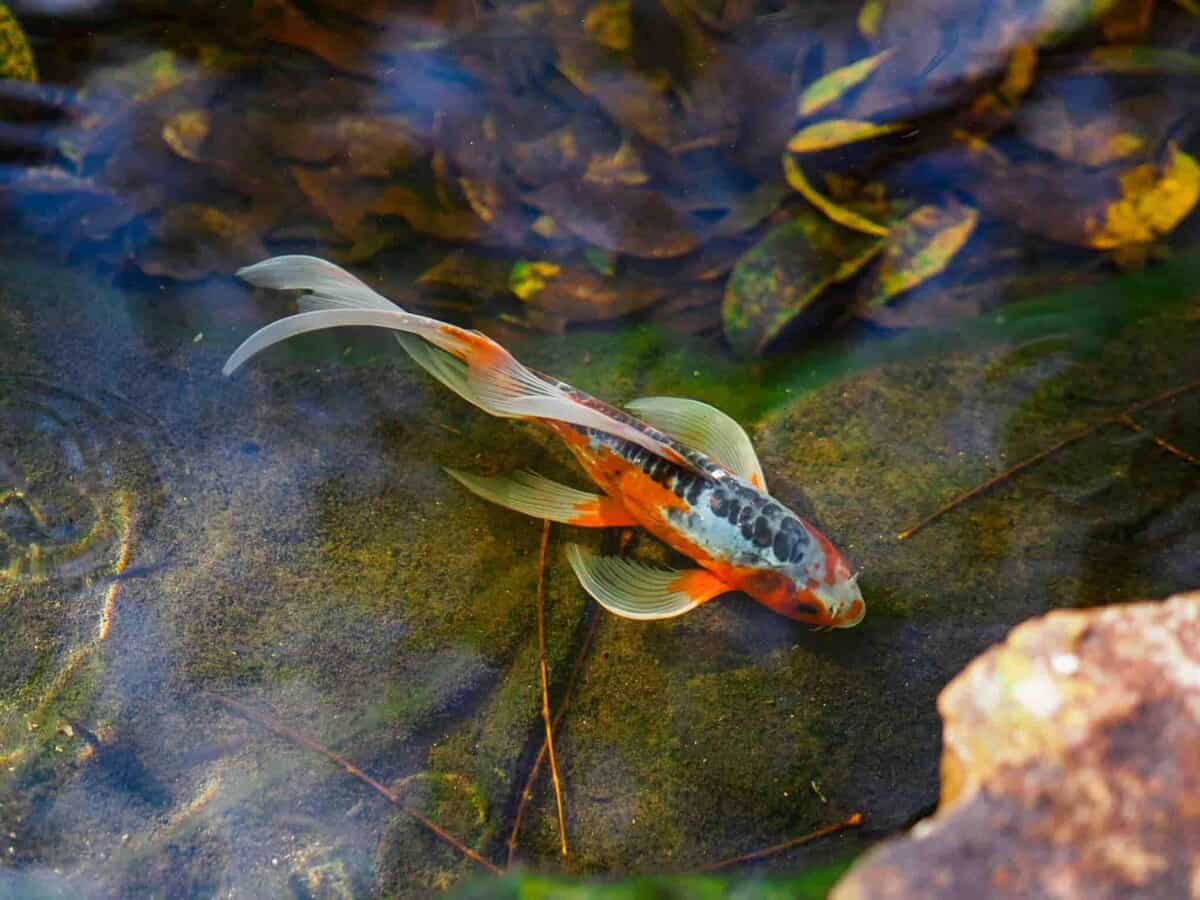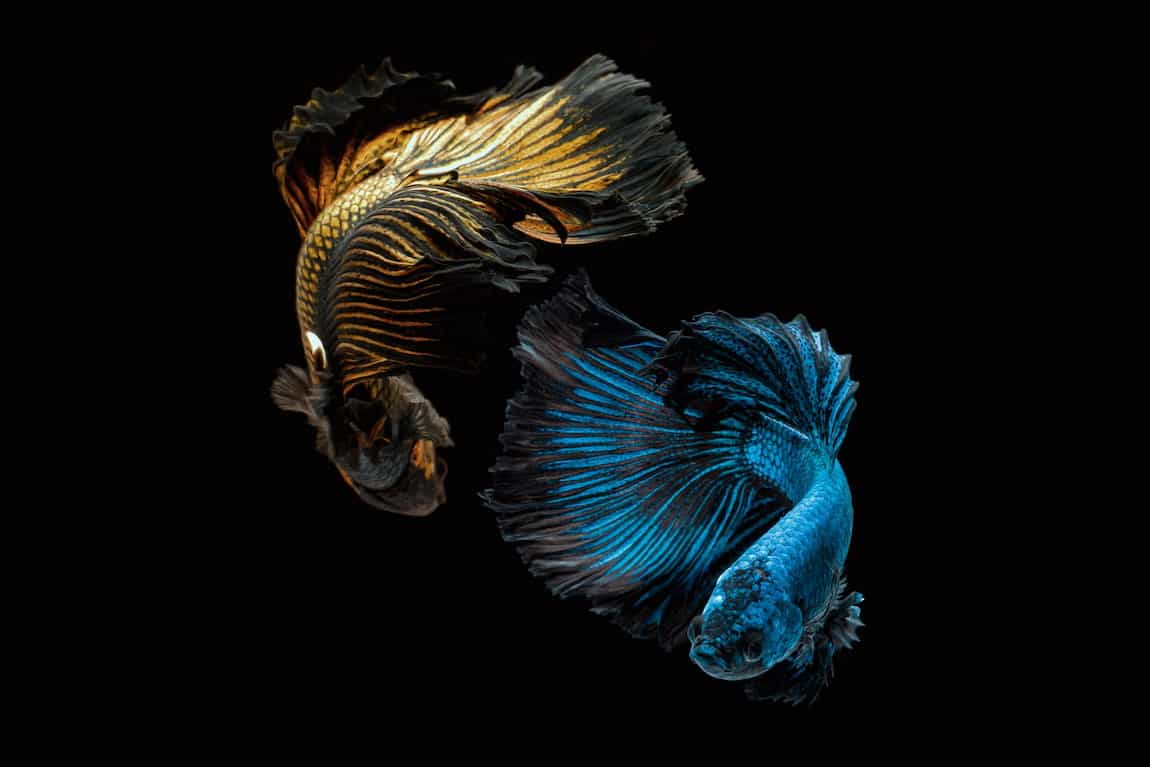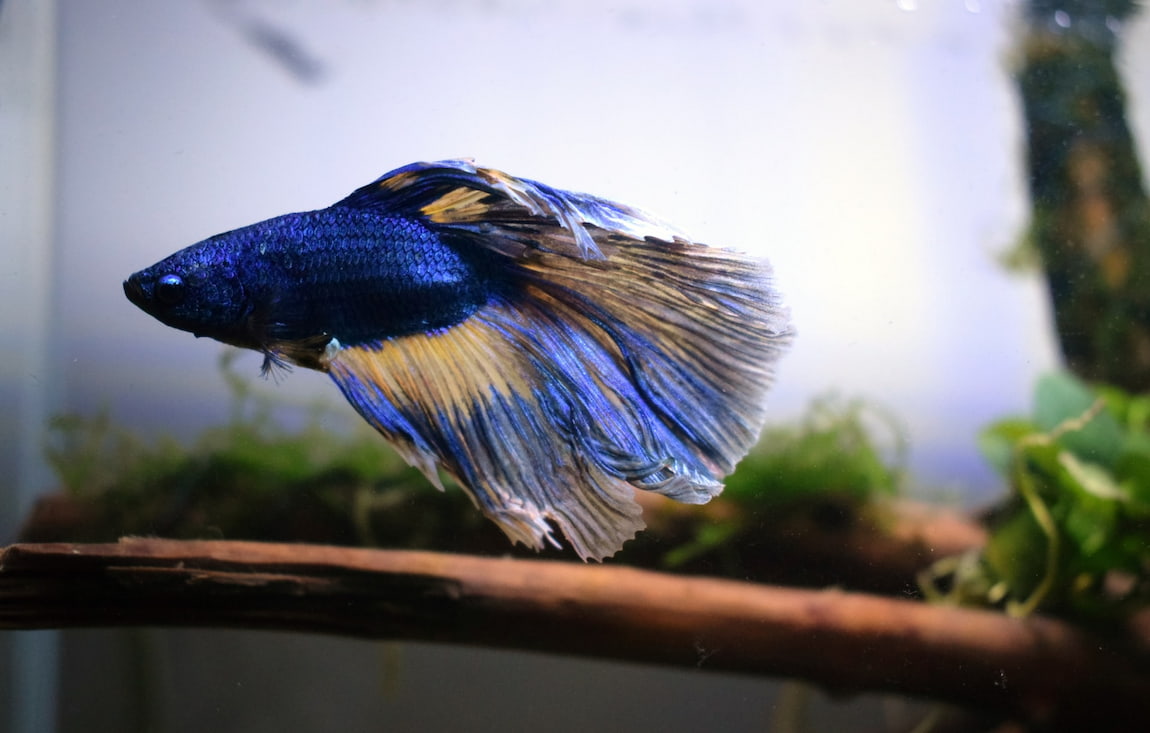Whether you’re an experienced fish keeper, a novice hobbyist, or simply someone with an interest in biology, you’ve probably asked yourself the question at some point: Do fish sleep? No doubt you’ve seen your pet fish lying still at the bottom of the tank, and wondered if it was merely resting or genuinely slumbering. The answer is yes fish do sleep however, it is a little more complicated than you would expect and this article is here to explain exactly how fish sleep, in what ways it differs from mammal sleep, and the potential risks of disrupting your fish’s sleep habits. Read on for a comprehensive exploration of fish sleeping habits.
What Do We Know About Fish Sleeping Habits?
It’s commonly understood that both fish and mammals need to sleep in order to rest and recharge their bodies’ physiological batteries. However, scientists have not yet been able to observe fish sleeping in the same way mammals do. Fish seems to lack the slow-wave, deep sleep most mammals experience. As a result, researchers cannot definitively say that fish actually “sleep” in the same way humans and other mammals do.
While fish may not engage in the same slow-wave, deep sleep humans do, scientists have observed behaviors consistent with sleep in some species of fish. Some types of deep-water fish appear to drift into ‘restful sleep’ during certain periods of the day. During these periods of rest, their brain activity appears to drop off to levels similar to the deep sleep of mammals.
In addition, some fish species have been observed to rest in a state of semi-consciousness, where they remain alert to their environment but are not actively swimming or searching for food. This state of semi-consciousness is thought to be a form of sleep, as the fish’s brain activity is reduced and their bodies are in a state of rest. This behavior is seen in some species of fish that live in shallow waters, where they need to remain alert to predators.
Finally, some fish species have been observed to enter a state of torpor, where their metabolic rate and activity levels drop significantly. This state of torpor is thought to be a form of sleep, as the fish’s brain activity is reduced and their bodies are in a state of rest. This behavior is seen in some species of fish that live in cold waters, where they need to conserve energy.
How Do Fish Sleep?
If fish don’t go through the same deep, slow wave sleep as mammals, then what do they do when it comes time for rest? In some cases, fish will simply rest rather than engaging in true sleep. Resting can be a effectively be a way for fish to gather its energy for when it does become active. During this rest period, known as “Quiescence” or “Dolce” activity, the fish may relax in one spot for some time.
Quite often, a resting fish will become motionless, with its fins slowly fanning or tail gently moving to keep its position in the water column. On rare occasions, scientists have even observed fish seemingly dreaming during this rest period as they twitch and make facial expressions as if they were experiencing REM sleep.
In addition to resting, some fish species may also engage in a behavior known as “shallow sleep”. This is a state of reduced activity and decreased responsiveness to external stimuli. During shallow sleep, the fish may remain in motion, but its movements will be slower and less coordinated than when it is awake. This behavior is thought to be a way for the fish to conserve energy while still being able to respond to potential threats in its environment.
What Are the Different Types of Fish Sleep?
In addition to fishes’ tendency to rest or remain still for longer periods of time, some species also seem to engage in night/day cycles of activity and rest. Generally, these rotations are linked to the moon’s rotation and the light cycle of day and night. Coral reef fishes often display this behavior, typically resting between dusk and dawn and then being more active during the day.
Some species of deep-sea fish will retreat to the ocean floor at night. Here they apparently sleep soundly through the darkness. This behavior seems to be associated with a rise in melatonin associated with lack of light. Studies indicate that these types of fish are more vulnerable to predators during their periods of night-time repose.
In addition, some fish species have been observed to sleep with one eye open. This behavior is thought to be an evolutionary adaptation to help protect the fish from predators. By keeping one eye open, the fish can remain alert to any potential danger while still getting some rest.
What Is the Impact of Lack of Sleep on Fish?
As with any creature, lack of sleep can be seriously detrimental to health and performance. For example, when freshwater gobies fail to get adequate rest they become more open to disease and predation. In some cases, lack of sleep leads to reduced motor coordination, increased aggression and reduced feeding habits.
In terms of their ability to learn and remember different behaviors, many fish species have been observed to suffer from lack of proper sleep. Studies have found that fish species like zebrafish can show reversible memory deficits if their resting period is disrupted or shortened. This suggests that humans might not be alone in needing adequate rest for good cognitive performance.
In addition, research has shown that fish who are deprived of sleep can experience a decrease in their overall activity levels. This can lead to a decrease in their ability to explore their environment and interact with other fish. This can have a negative impact on their overall health and well-being, as well as their ability to survive in the wild.
Do Different Types of Fish Sleep in Different Ways?
It might be tempting to think of all fish as the same when it comes to sleeping habits. However, like most creatures, different species tend to exhibit slightly different sleep behaviors based on their environment and basic physiology. For example, the sleep behavior of shoaling species like guppies and goldfish tends to differ from that predators such as sharks, catfish, and trout.
In shoaling species, which tend to travel and feed in groups, there is usually a decrease in activity during night time as individual members of the group become tired. During this time of rest, the shoaling species may line up close together for safety and protection from predators.
In contrast, solitary predators such as sharks often become more active at night as they hunt for food. During the day these creatures may rest motionless on the seabed or in caves. They may also enter ‘periods of dormancy’ where their metabolic rate reduces, making them less likely to be spotted by predators.
In addition to the differences in sleep behavior between shoaling and solitary species, there are also variations in the amount of sleep that different species require. For example, some species may only need a few hours of sleep each day, while others may need up to 12 hours of rest. This is likely due to the different levels of activity and energy expenditure of different species.
How Can You Tell If a Fish Is Sleeping?
Unfortunately, it can be difficult for a casual observer to tell if their pet fish is actually asleep or simply resting. While certain signs can indicate that a fish is in a state of rest (such as remaining still or slightly fanning its fins), an experienced aquarist may need to examine subtle nuances in behavior before they can truly say that the fish is asleep.
For example, if a fish typically swims around at night but appears motionless on a certain night then it may be safe to conclude that it is sleeping. Other signs of fish slumbering can include closing eyes, shallow respiration, slower swimming motions and overall less active responses to stimuli.
In addition to these signs, some fish may also exhibit a change in coloration when they are sleeping. This is especially true for species that have the ability to change color, such as the clownfish. When clownfish are sleeping, they may appear darker in color than when they are awake.
It is important to remember that fish do not sleep in the same way that humans do. They do not enter a deep sleep state and they do not dream. Instead, they enter a state of rest that is similar to a light sleep. This means that they can still be easily disturbed and may wake up quickly if they sense any changes in their environment.
Are There Any Benefits to Letting Your Fish Sleep?
It stands to reason that giving your fish some time to rest and truly sleep without disruption will be beneficial for them overall. Moreover, providing a peaceful environment where unwanted noise and light can be avoided could also reduce stress for your pet. Many experts recommend keeping lighting in an aquarium dimmed during night time hours so as not to disturb a fish’s ‘sleepy’ state.
On a broader scale, allowing your fish time for physiological recovery and rest can potentially help improve its health in general. Studies have shown that sleep deprivation can lead to mortality in many species of fish so it is important to provide an environment which allows them some much needed shut eye.
Does Light Affect Fish Sleeping Habits?
The amount of light available will usually have an effect on when and how long a certain species of fish sleeps. It is well known that cycles of light and darkness will affect the behavior of many species when it comes time to rest. Therefore it stands to reason that introducing artificial light into an environment can potentially interfere with this natural rhythm.
As a result, it is advisable for those rearing fish at home or in hatcheries not to keep lights on for too long during night time hours in order to prevent disruption of the fishes’ normal sleeping habits.
How Long Do Fish Generally Sleep For?
On average it seems that most types of fish engage in periods of rest or light sleep of anywhere between 1-8 hours per day. Species like guppies may only rest for shorter periods while larger predatory species like Red Grouper can rest for extended periods ranging between 5-8 hours. Generally speaking, long-term rest periods tend to last from dusk until dawn.
It should be noted that individual fish sleeping habits could vary depending on its environment and whether or not it is kept with other fishes or aquatic plants which could influence sleeping patterns.
Can You Wake a Sleeping Fish Up?
As mentioned briefly above, some aquarium owners might worry about disturbing their pet when it begins resting or sleeping. Most aquarium enthusiasts agree that unless absolutely necessary it should not be done. Roughly handling or disturbing a sleeping fish could potentially cause serious stress and further damage its health if it happens too often.
Fishes’ ability to sense potential danger while they rest could vary with some species being more susceptible than others. It is therefore generally agreed upon that aquarium owners should try their best not to wake their pet up once it has begun resting in order to avoid any lasting health effects.
What Are the Health Risks of Interrupting a Fish’s Sleep Cycle?
As with most creatures, disturbing a fishes’ sleep cycle can be detrimental to its health in both short and long term ways. Studies have shown that interrupting normal sleep patterns can lead to issues such as impaired body function and performance deficits due to loss of coordination and focus.
In extreme cases where a fish is subjected to frequent disruptions in normal sleeping/resting habits long term issues such as crashing growth rates, reduced reproductive success and heightened levels of aggression can become evident.
What Is the Takeaway for Responsible Pet Ownership Regarding Fish Sleep Habits?
The fact remains that when kept in captivity many aquarium fishes tend not to exhibit normal sleeping patterns due interruption from aquarium lights and noise caused by pumps etc. It is therefore very important for responsible aquarium owners to try their best to maintain peaceful resting periods for their pet fishes if possible.
It should be noted that every species is different when it comes to sleeping habits so most aquarists should research their particular type of fish before attempting to make changes. It is also highly recommended that aquariums remain free from loud noises or bright lights during certain hours so as not to disrupt potential resting periods.





